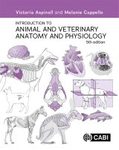Edited By: DP Abrol and Uma Shankar
502 pages, b/w photos, b/w illustrations, tables
![Integrated Pest Management Integrated Pest Management]()
Click to have a closer look
About this book
Contents
Customer reviews
Related titles
About this book
Providing a critical evaluation of the management strategies involved in ecologically-based pest management, Integrated Pest Management presents a balanced overview of environmentally safe and ecologically sound approaches. Topics covered include biological control with fungi and viruses, conservation of natural predators, use of botanicals and how effective pest management can help promote food security. In the broader context of agriculture, sustainability and environmental protection, the book provides a multidisciplinary and multinational perspective on integrated pest management useful to researchers in entomology, crop protection, environmental sciences and pest management. It is suitable for researchers and students in pest management and crop protection.
Contents
1. History, Overview and Principles of Ecologically Based Pest Management
2. Integrated Pest Management for Sustainable Agriculture
3. Pest Monitoring and Forecasting
4. Augmentation and Conservation of Natural Enemies
5. Biotechnological and molecular approaches in management of pests and diseases of crop plants
6. Botanicals in Pest Management
7. Biopesticides in Ecologically Based Integrated Pest Management
8. Entomopathogenic Nematodes as Tools in Integrated Pest
9. Microbial Control of Crop Pests Using Entomopathogenic Fungi
10. Microbial control of crop pests using insect viruses
11. Biological control of weeds with plant pathogens: four decades on
12. Virus and Bacteria Transmitting Arthropod Vectors and Their Management
13. Effect of Pesticides on Non Target Sites with reference to Soil Ecosystem
14. Integrated Pest Management in Stored Grains
15. Role of Integrated Pest Management in Food and Nutritional Security
16. Role of Information and Communication Technology in Integrated Pest Management
17. From Integrated Pest Management to Ecosystem Management: The Case of Urban Lawn
Customer Reviews
Edited By: DP Abrol and Uma Shankar
502 pages, b/w photos, b/w illustrations, tables


































